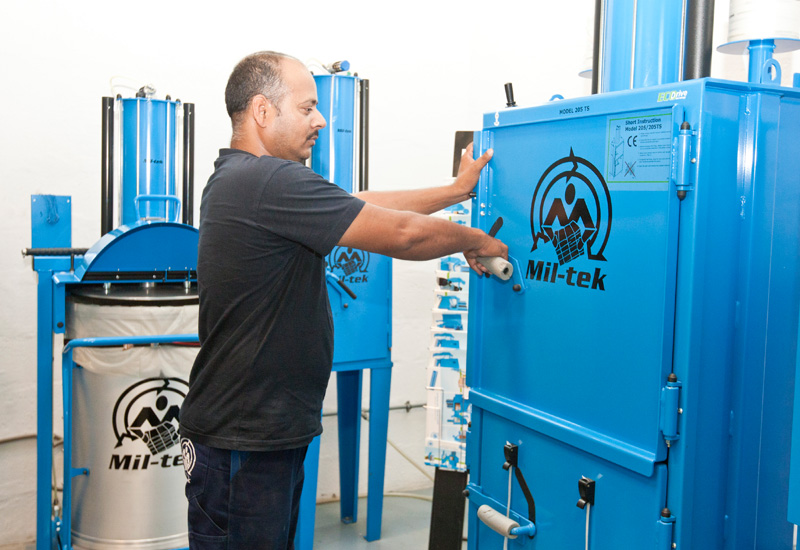Managing ever increasing amounts of waste is becoming a top priority for hotels across the Middle East, resulting in the adoption of new technology and waste flow management techniques. Hotelier Middle East talks to some of the most waste efficient hotels and suppliers across the region who realise that when it comes to waste, less is definitely more
very week, throughout the Middle East, hotels and restaurants are throwing away thousands of tonnes of food and packaging waste. Over the course of a working day waste collects, builds up and flows throughout a hotel as it is collected from service areas and moved into bin or storage areas to await collection and transportation by private companies.
According to Mil-Tek, one of the largest manufacturers and suppliers of waste balers and presses in the Middle East, this flow of waste is one of the biggest challenges facing hotels attempting to balance the demands for space in hotel service and operational areas.

| Advertisement |
“As flow waste fluctuates throughout a hotel during busy and slow periods, many hotels find that they can’t control their waste properly. If they only have a small waste room, and a set number of bins, depending on how busy they are then sometimes they will be overflowing and sometimes they are being under used,” says Mil-Tek Middle East export manager Darren Laird.
“When a hotel is looking at handling waste, they should be attempting to try and eliminate any unnecessary internal logistics that exist in the property. For example, if you have a busy hotel kitchen that is producing say 100 bags of rubbish per day, then you will have staff moving through, into and out of the waste area all day,” says Laird.
“Not to mention the space that is needed to store that waste before it’s moved around, having to move bags back and forth around the back of house is unhygienic,” he adds.
GARBAGE GOVERNANCE
Therefore, how a hotel sets up its waste management system, and how it is able to manage the ‘flow’ of waste throughout the property becomes a major factor in basic hygiene standards and best practice for food and guest safety. This has now become, according to Hans Hammer, sales and marketing manager of the Dutch waste management company Rendisk, one of the major issues that hotels in the Middle East approach him about.
“Usually, one of the major problems around the world for waste management is manpower. However, in the Middle East, where labour is relatively available and inexpensive, the major issue is instead hygiene,” explains Hammer.
“This is the one major area in which hotels are looking to improve, as they try to adhere to increasingly rigorous hygiene standards, as well as to prepare themselves for any possible future regulations from regulatory bodies,” he adds.
An example of waste management regulations imposed in the region is the Nadafa Programme from the Centre of Waste Management in Abu Dhabi. Launched in the 2010, the programme is designed to impose financial tariffs on the levels of waste produced by companies in the emirate, a charge equivalent to AED 225 (US $61) for each tonne of waste produced per year.
For any large hotel producing hundreds of tonnes of waste per year, this is a charge that can quickly add up, in addition to existing and already significant manpower and storage costs.
As a result, according to American food waste disposal system manufacturer Insinkerator’s business development manager Mohamed Karam, “the major waste considerations for hotels tend to be centred around any existing or even potential local regulations and laws laid down by the municipality.
“However, when considering the machinery they need, hotels should also bear in mind the size of the waste area available, in contrast to the average amount of waste produced on site. Other considerations are labour costs, the level of staff and training needed to operate any machinery, as well as other costs such as the amounts of water and electricity required,” adds Karam.
Article continues on next page ...









 Search our database of more than 2,700 industry companies
Search our database of more than 2,700 industry companies









